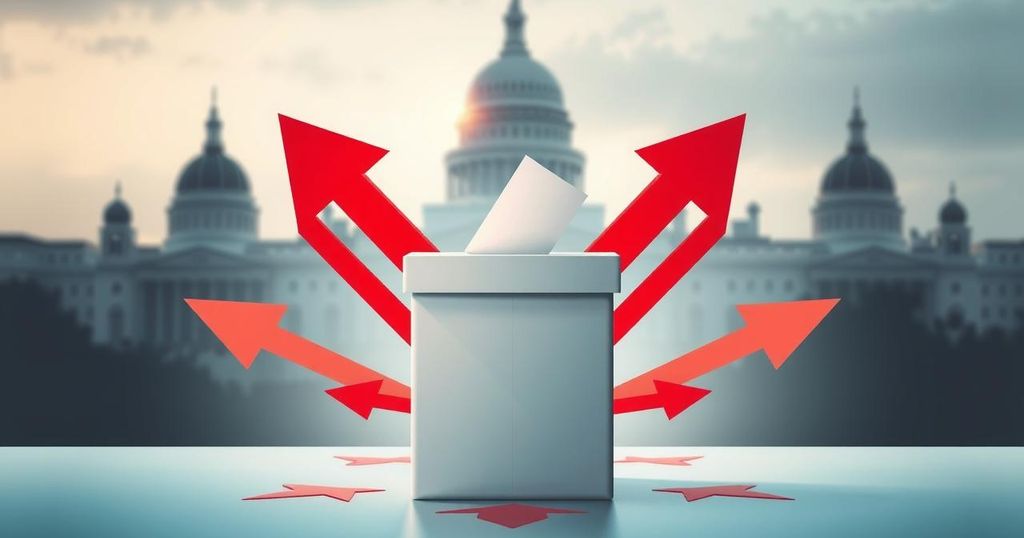Ecuador’s political tensions are highlighted as Daniel Noboa and Luisa González move towards an April runoff election following close preliminary results. Noboa aims for reelection after taking over from Guillermo Lasso, while González represents former President Correa’s party. The polarized backdrop features significant debates around economic policies and social issues, making the election critical for the country’s future.
Ecuador is facing a polarized political climate as incumbent Daniel Noboa and progressive candidate Luisa González prepare for an upcoming runoff election in April 2025. The February 9 elections resulted in both candidates receiving nearly equal votes, with each securing around 44%, falling short of the 50% needed for outright victory. This race is reminiscent of the previous presidential election where Noboa defeated González in a tightly contested battle.
The political backdrop is critical, marked by former President Guillermo Lasso’s decision to dissolve Congress through a constitutional mechanism called “muerte cruzada,” leading to new elections. After serving out Lasso’s term, Noboa is now vying for reelection, while González, aligned with former President Rafael Correa’s party Revolución Ciudadana, aims to reclaim power.
Noboa, a wealthy businessman and Harvard graduate, has positioned himself alongside right-wing leaders and champions neoliberal policies, contrasting sharply with González’s proposals focused on social funding for key public services. His administration has adopted strict security measures in response to rising drug-related violence, raising concerns of authoritarianism among critics. Additionally, his controversial diplomatic moves, including a police intervention in a foreign embassy, have caused international tensions.
In the previous election cycle, Noboa’s administration faced internal conflicts with his vice president, Verónica Abad. Despite winning her position, complications arose from Noboa’s attempts to navigate electoral laws allowing politicians to campaign while serving their term. His new running mate, María José Pinto González Artigas, reflects adherence to gender balance requirements in Ecuadorian politics.
The election has seen a significant reduction in candidates, with some eliminated due to legal disputes, suggesting a potentially narrow path for electoral success. Among the challengers, Leonidas Iza of the Pachakutik party, represents leftist ideals but struggled against entrenched prejudices that limit support for Indigenous candidates. His campaign speaks to broader societal fractures and the ongoing struggle for representation among diverse communities.
The subsequent Assembly elections, occurring alongside the presidential race, further illustrate the divide between Noboa’s National Democratic Action (ADN) and González’s Revolución Ciudadana. As the April runoff approaches, uncertainty looms over which candidate holds a competitive advantage. The electoral outcomes point towards a complex landscape ahead, challenging any newly elected government to address pressing societal issues amid a deeply divided electorate.
Ecuador’s political landscape is marked by a highly polarized atmosphere, as evidenced by the upcoming runoff election between incumbent Daniel Noboa and challenger Luisa González. With nearly identical initial vote shares and competing ideological platforms, the election results underscore the deep socio-economic challenges faced by Ecuadorians, including rising violence and economic instability. Both candidates must navigate legislative complexities and societal expectations as they approach the critical April vote, indicating that a clear resolution to the country’s pressing issues remains difficult to attain.
Original Source: nacla.org




